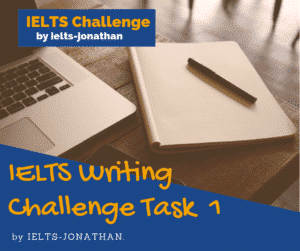IELTS Listening
IELTS listening can cause candidates many problems and the test is challenging for a variety of reasons:
Reading this guide will help you address all of these issues and provide you with key strategies to improve your Listening scores.
General Training vs. Academic
Exam Length
There are Four Sections to IELTS Listening
You hear four different listening passages in the IELTS Listening. You answer 10 questions in each section, so 40 in total.
The passages become more challenging as you progress through the exam paper. Each question carries the same mark.
Passage 1:
My Tips
Identify the number of words
Spellings are important
Check the pronunciation here
You can check the both the meaning and the pronunciation of the words.
Type the word here, listen and check the meaning.
Spellings of names and street names
Writing numbers correctly
What about Dates?
Telling the time correctly
Listening for Corrections in the Test
One final tip for this section is to be aware of corrections in IELTS.
Listening for details
Now that you have the general idea of what to expect and do, let’s look at the other passages in the test.
Passage 2:
- This is usually a monologue (one person speaking).
- The passage is an everyday social topic.
- A person provides directions, instructions or presents basic information about a place or an event.
- A map is often included therefore you need to be familiar with following directions.
Example
Passage 3:
- The topics are more challenging in Passage 3.
- This is usually a conversation among several people about an academic topic.
- Students discuss something from class, or a teacher provides feedback about an assignment.
- Listening Section 3 is more challenging as the vocabulary is more unfamiliar, the topics are more complicated and there are more speakers in the discussion.
Passage 4:
- This is from a lecture.
- It is from a topic from a typical college course.
- You are not required to have specialized knowledge about the subject matter. However, the language will be difficult and the lecture will be complex.
- This is the most challenging passage on the Listening exam for most students.
My Tips
Scoring for IELTS Listening
Instructions – IELTS Listening Questions
Strategy – IELTS Listening Questions
Although each Listening question has unique features, the basic approach to each one is similar. There are three things you should do for every question you encounter:
- Analyse the question
- Predict the possible answer
- Track questions as you listen to the speaker
Analysing and Predicting
Example of Prediction Skills 1
Example of Prediction Skills 2
Following the questions and the speaker
Additionally, the IELTS Listening questions are also presented in order of the commentary.
In other words, the speaker(s) provides the answer to question 1 before you hear the answer to question 2, and so forth.
Therefore, it is easy to use the information in the notes to determine where the speaker is.
As you listen, focus on the question you’re trying to answer but also pay attention to the next question.
If the speaker is talking about the next question and not the question you are expecting, it is probable that you missed an answer.
While this is not good in itself, using this strategy gives you the opportunity to focus on the current moment and move on rather than lose points by losing your place in the question paper.
IELTS Listening: Tips and Resources for Practice
Finally, you can go over to my Facebook page and join thousands of other students who are working towards the test.
Join my IELTS WRITING TASK 1 group here, for free practice.
Before that you can review and listen to the various question types in these posts below Review my full article here.
| Listening sample test 1 |
|---|
| Listening sample 1 task – Form completion (PDF, 59KB) |
| IELTS listening recording 1 (MP3, 1.2MB) |
| Listening sample 2 task – Multiple Choice (PDF, 16KB) |
| Listening recording 2 (MP3, 402KB) |
| Listening sample 3 task – Short Answer (PDF, 25KB) |
| IELTS Listening recording 3 (MP3, 574KB) |
| Listening sample 4 task – Sentence Completion (PDF, 17KB) |
| IELTS Listening recording 4 (MP3, 549KB) |
| Listening sample 5 task – Matching (example 1 – PDF, 21KB) |
| IELTS Listening recording 5 (MP3, 2.8MB) |
| Listening sample 6 task – Matching (example 2 – PDF, 21KB) |
| IELTS Listening recording 6 (MP3, 2.1MB) |
| Listening sample 7 task – Plan/Map/Diagram Labelling (PDF, 25KB) |
| IELTS Listening recording 7 (MP3, 2.7MB) |
| Listening sample 8 task – Note Completion (PDF, 59KB) |
| IELTS Listening recording 8 (MP3, 4.18MB) |
| Listening Recording 8 Answer Sheet (PDF, 16KB) |
| Listening Sample 9 Task – Short Answer (PDF, 25KB) |
| IELTS Listening Recording 9 (MP3, 11.8MB) |
| Listening Recording 9 Answer Sheet (PDF, 17KB) |
| Listening answer sheet |
|---|
| Listening answer sheet (PDF, 233KB) |













